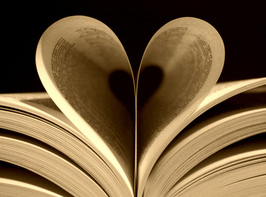|
by Kaitlyn Gaffney
I am an unabashed fantasy nerd. I was raised on Harry Potter, YA vampire novels, Brandon Sanderson, and Dungeons & Dragons. I still play World of Warcraft and I world-build for fun, but my entire life, I have heard fantasy--and genre fiction in general--referred to as a “guilty pleasure.” With the explosion of YA and genre fiction in the past decade or so, the literary world has seen many arguments for the distinction between genre fiction and literary fiction and, in many cases, for literary fiction’s superiority. Arthur Krystal, in his piece “Easy Writers” for The New Yorker, promotes this hierarchy on the basis of genre fiction’s disproportionate focus on archetypal plot and inherent escapism. He describes genre fiction as “a narrative cocktail that helps us temporarily forget the narratives of our own humdrum lives.” I read this article a few months ago and felt the familiar sting of shame for my love of fantasy fiction.
1 Comment

by Alexis Zimmerman
There are countless books in Young Adult Literature where the main character must fall in love with the main love interest by the end of the book. These two characters fall in love in the most unrealistic of ways without even knowing each other that well and only having maybe a handful of conversations. Yet for some reason, young readers seem to devour those books. There are so many copies of this cliché and unrealistic type of book sold in the bookstores more often than not that it’s unbearable. But does the love in these books happen naturally? Can someone fall in love as quickly as these characters fell in love? How do these instances of insta-love affect the younger readers who gravitate towards these particular books? Are they getting the impression that love happens right away, like it does in the books they’re reading? by Amanda Rennie The world is dark, dismal, messy; there is a teenager who is, believably, old enough, clever enough, mature enough, independent enough to make life-altering decisions. 16 or 17 is a good age because then they can rebel against adults, not go to school, and have an intense and passionate relationship. This teenager isn't like all the other teenagers. This teenager can make a difference. Yawn. It started with the vampire craze, but the publishers of young adult fiction have fully submersed themselves in Dystopia: everywhere and everything is terrible, and only one young person has the ability to change it and make the world a better place. Young adult authors, lots of them, have been churning out trilogies (ALWAYS trilogies) with the same stock characters and fabled ending for years now. And guess what? It's only becoming more generic.
By Jessica M. Tuckerman Here’s a brief description of one of my favorite stories: Desmond Miles just escaped from Abstergo Industries, the modern day face of the Knights Templar, after he was forced to live out the genetic memories of his ancestor who fought in the crusades. He escapes with Lucy Stillman and two others who help him to reach a secluded cave where Desmond relives the memories of Ezio Auditore da Firenze. The story jumps between Ezio’s story in the Italian Renaissance and the cave where Desmond is desperately trying to find an alien device which will destroy the world if it falls into the wrong hands. By reliving Ezio’s memories, Desmond hopes to find where the device is hidden before Abstergo catches up to him.
The story is full of twists and turns. I actually cried when Ezio, the narrator for much of the story, had to watch his family hang in the middle of Firenze. I love the plot, I love the framed narrative, I love seeing Italy during the Renaissance. I was consistently surprised throughout my first reading of the piece and I truly recommend that you pick it up. The story is from Assassin’s Creed II. A video game.  by Elaine Paliatsas-Haughey Once again in my teaching career I am seated across a school room table from the parents of a student who is struggling to read. I say, "Little Janie is reading on a third grade level in fifth grade and would really benefit by reading at home, along with the remedial instruction she is receiving here at school." They ask, "What should we have her read?" I launch into an enthusiastic list of book titles recently out for elementary age students and they are on board. I mention classics from their own childhoods, like Ramona the Brave and The Hardy Boys. Things seem to be going well and everything is falling into place until I say, "And she doesn't have to read just traditional books. She can read manga and graphic novels. Try poetry or magazines. If there is a particular website she enjoys, encourage that. She can read the cereal box out loud to you during breakfast if you want!" I see I've become too impassioned at that point. Now I've lost them. What I find in the rest of our conversation is that I lost them after traditional books. Often, because parents associate learning with only classic literary stories the idea of using almost any other form of written word to educate youngsters is foreign territory. They cannot see the value in other forms or genres. |
Archives
July 2024
Categories
All
|
|
Glassworks is a publication of Rowan University's Master of Arts in Writing 260 Victoria Street • Glassboro, New Jersey 08028 [email protected] |
All Content on this Site (c) 2024 Glassworks
|


 RSS Feed
RSS Feed
